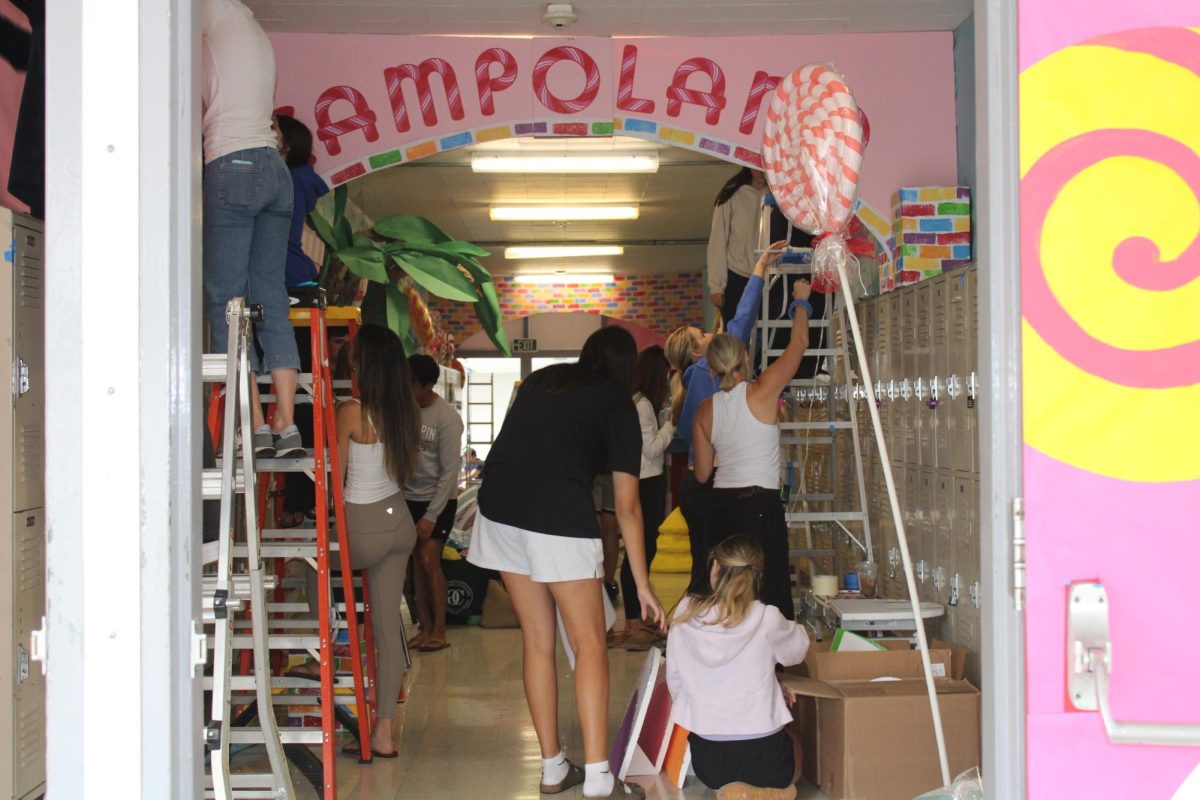The Campolindo Environmental and Garden Club (Eco Club) is one of Campolindo’s most productive service clubs. The club takes care of the school and while advocating for more environmentally friendly practices at our school and in the community. Outside of school, the club participates in volunteer work and partners with other clubs. Every Friday, they host volunteer work. The club meets in Art and Video Production teacher Justin Seligman’s room, and meetings are held biweekly on Wednesdays during lunch. For the past three years, the club has been led by seniors Vivian Tolajian and Ella Dunn.
Tolajian joined her freshman year saying she “wanted to help out at the Campo garden.” Tolajian was a part of the Eco Club at her middle school and knew she wanted to pursue environmental science. Dunn joined her sophomore year and said she “really like[s] gardening and finding fresh produce because [she] really like[s] cooking.” Dunn said she wanted access to the garden, and joining the club would allow her to do community service. Both Tolajian and Dunn took over the club in their sophomore year and have spent their years in the club trying to change the environment for the better.
The two leaders agreed that their main goal is to make Campo “more sustainable.” Tolajian and Dunn want to achieve that goal in many ways, including managing the school’s water usage and waste. The club partners with many other clubs, encouraging people to join Team Campost, a voluntary group that provides extra credit in select classes. Students would learn about properly sorting out trash and other environmental sustainability lessons. They also collaborate with Academic Decathlon (AcaDeca) and perform general garden maintenance.
Tolajian noted that another one of their goals for the year is raising more money to “build a better quality goat shed.” Dunn said, “with the goats, we partner with 4-H, so it is technically their goats.” However, the Eco Club takes care of the goats and feeds them twice a day. Seligman noted that their main responsibility with the goats is “maintenance of the pen.” The goats are also sheared twice a year, which happened very recently. Seligman notes that it “keeps them happy and healthy.” The wool is used for other projects at Campo.
The Eco Club provides the housing and general care for the goats, while 4-H provides the goats and their food. The Eco Club wants to build a barn to improve the housing of the animals, and they have fundraisers to help them afford it. Fundraisers have included posters for Moraga’s 50th anniversary, and a clothing swap with leadership; they will sell honey at Bob’s Christmas Tree Farm this holiday season.
Seligman took over the club five years ago. Seligman said, “I had a strong desire to help Campo students demonstrate leadership in environmental and sustainability issues.” Seligman holds a big role in the club and Dunn notes that “he’s been running it for all this time and he goes to a lot of district meetings and he pushes for what Campo wants, in terms of sustainability.” The club holds its biggest events during Earth Week, which is from April 16-22, and Earth Day is Saturday, April 22, 2025. Nevertheless, many big events are still to come during the first semester, including the big garden work day, which was rescheduled to November 16 due to weather.
